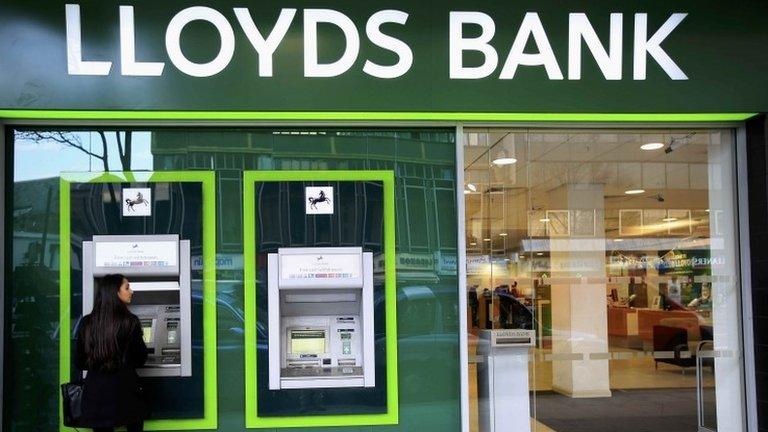Share sale returns Lloyds to private sector
- Published
Lloyds chief executive Antonio Horta Osorio talks to the BBC's Simon Jack
The government has confirmed its remaining shares in Lloyds Banking Group have been sold, eight years after pumping in £20bn to save it.
Lloyds Bank said the government will see a return of £21.2bn on its investment.
At the height of the financial crisis taxpayers owned 43% of Lloyds.
Its return to the private sector is in stark contrast with the other bailed-out bank - Royal Bank of Scotland - that is still 73% owned by taxpayers.
The government has been slowly selling down its stake in Lloyds for the past five years.
Ministers have claimed that all the public money used to buy Lloyds shares has been returned.
'Very difficult situation'
However, the true cost is disputed, with some critics claiming the lost interest has not been taken into account.
Others have argued that the heavy losses previously suffered by Lloyds also hit the government's stake.
Either way, the £20.3bn of public funds used to buy the shares had already been recouped due to dividend payments made to all shareholders.
At last week's annual meeting, Lloyds chief executive António Horta Osorio told shareholders he expected the government to make at least £500m from the bailout.
But on Wednesday morning he said the true figure was closer to £900m and called Lloyds one of the "strongest banks" in the world.
He also said the government had received more money than was originally invested.
"The fact that the government decided to use taxpayers' money, which is a last resort, to put £20.3bn in Lloyds at the time is evidence that the bank was in a very difficult situation," he told BBC Radio 4's Today programme.
"When I arrived six years ago the bank was in a very difficult financial situation and not focused on its customers in the UK."
Job losses
The shares have been sold off by Morgan Stanley at below the 73.5p average price paid in the three-stage bailout.
But taking the dividend payments into account means the total £20bn outlay has already been repaid.
Former chancellor George Osborne had hoped to offer the shares at a discount direct to the public, with a campaign similar to the classic Tell Sid campaign for British Gas in the 1980s.
Reaction from the City was broadly positive.
"Lloyds is now back to business as usual, and the withdrawal of a large seller from the market should be positive for the share price," said Laith Khalaf, senior analyst at Hargreaves Lansdown.
"The Treasury won't be making a song and dance about the Lloyds sale, seeing as we are in a period of purdah running up to the general election.
"Indeed the champagne corks should probably be kept on ice seeing as the taxpayer has only broken even on the face value of the Lloyds bailout, and is still nursing a loss if you factor in the borrowing costs associated with stumping up the money back in 2009."
The turnaround has not been without pain. About 57,000 jobs have been cut at Lloyds as it returned to profitability.
The EU also forced the bank to sell 600 branches due to competition rules and £17bn was set aside to fund PPI misselling - the biggest bill for any of the banks caught up in the scandal.
"We were the first bank of the big banks to drop legal actions that were dragging paying PPI and I was the first bank to drop that legal action and start addressing s the issue seriously. It was a bad product this had to be done [fixed] on principle and not in terms on financial provisions," Mr Horta Osório added.
But this year a £4.3bn profit - the biggest in a decade - finally allowed the bank to put its past behind it.
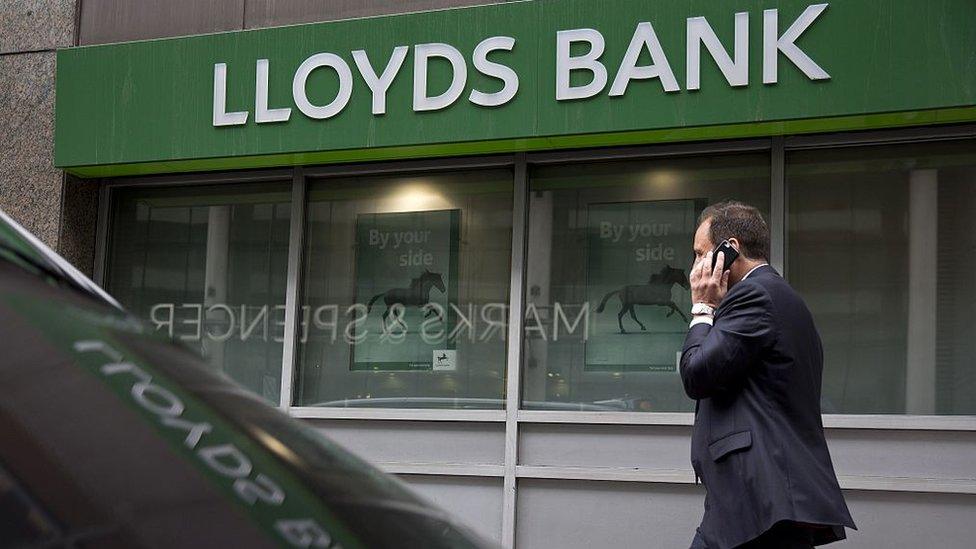
While the sale of the Lloyds stake marks a major turning point for the bank, taxpayers' other bailed-out institution - RBS - remains firmly in government hands.
RBS was rescued with a £45bn bailout in 2008 and 2009 and has failed to turn a profit since.
The bank recently posted a ninth consecutive year in the red, with losses of £7bn, bringing total losses since the bailout to £58bn.
The lender still faces £5.9bn of charges related to historic misconduct issues and potential legal costs.
A £400m pot has also been set aside to compensate small business owners and customers of its controversial Global Restructuring Group.
The now-defunct division secretly tried to profit from struggling businesses, leaked documents showed last year.
- Published17 May 2017
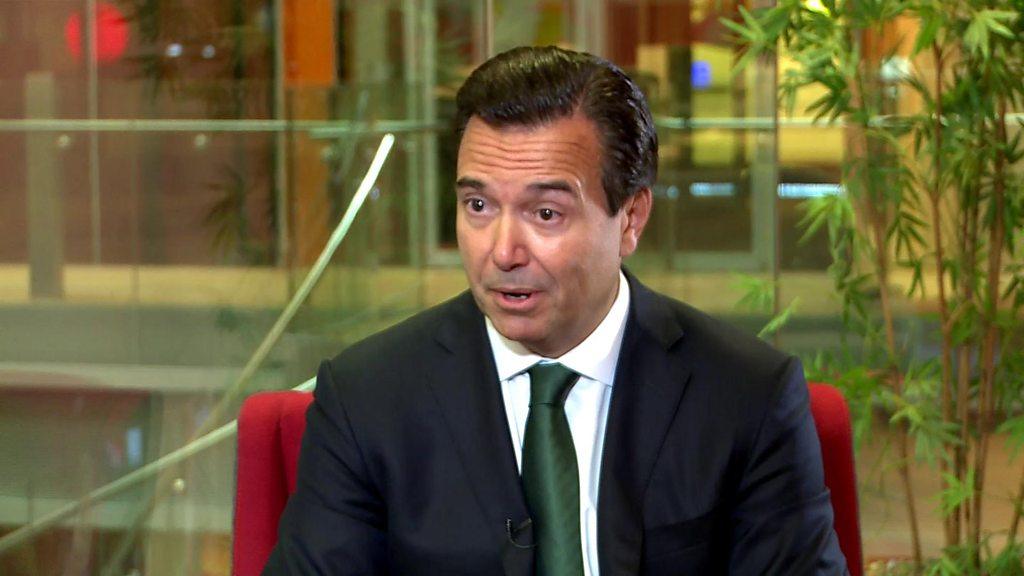
- Published17 May 2017
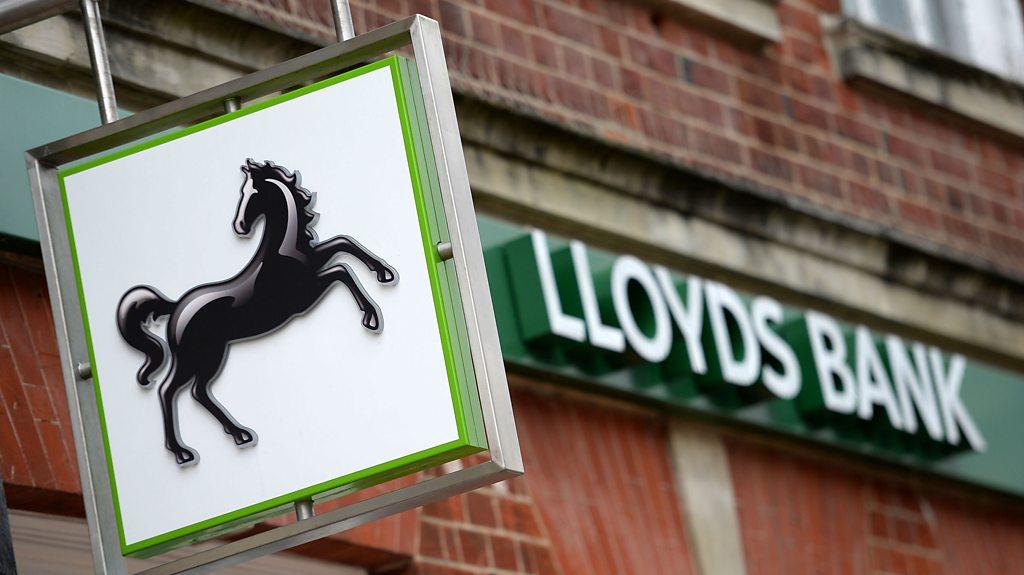
- Published17 May 2017
- Published11 May 2017
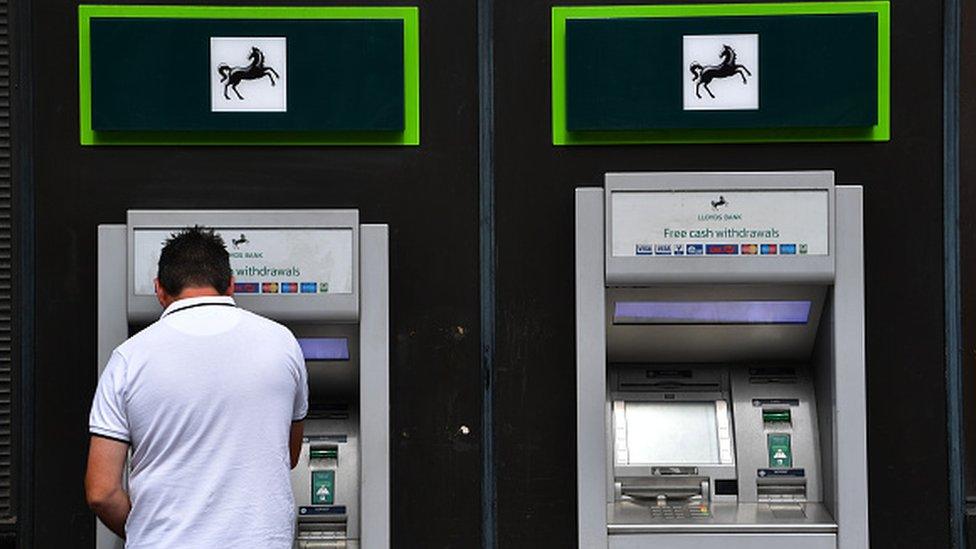
- Published21 April 2017
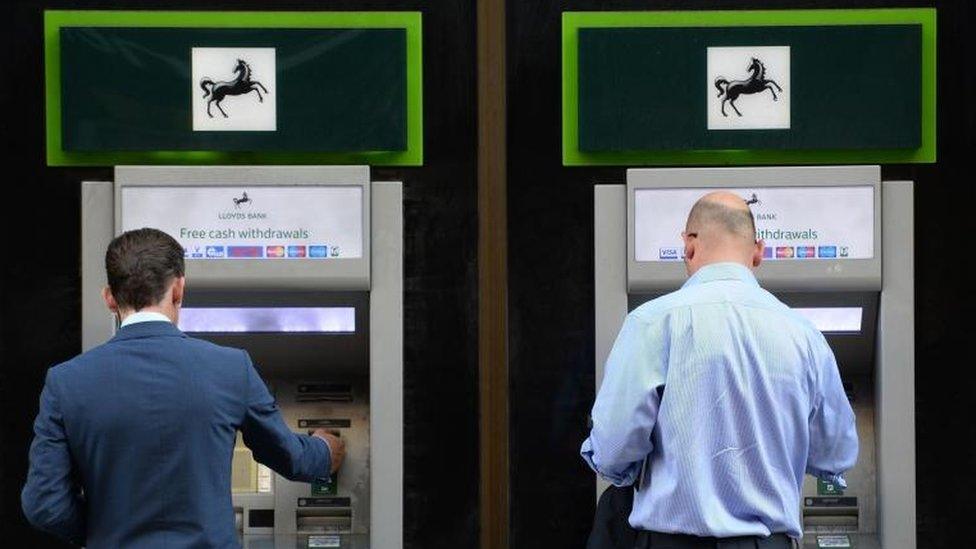
- Published22 February 2017
